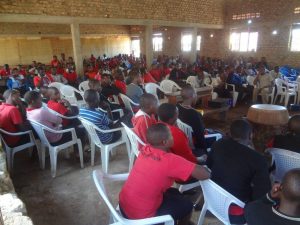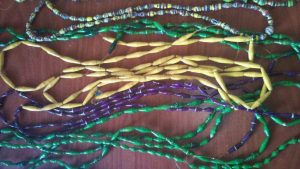The youth are a critical force in the development of any society. Our programs are aimed at empowering the youth to take charge of their own destinies and to become the forces of social change. They are introduced to activities that help them gain self-esteem, believe in themselves, and gain analytical and decision-making skills and general life skills.
Big Sister-Big Brother Mentorship Program
We all have had individuals who have been very significant in our lives—parents, friends, siblings, and relatives who acted as role models and big inspirations to us. They are the people who challenge us, who uplift us, who push us to keep going, who show us a sense of direction, and who are always there in good and tough times. But some children in our communities grow up without the support of this type of relationship.
The mentorship program is an opportunity for adults to become an instrument of inspiring force in a kid’s life. We invite adults to consider selecting a student at Hope Academy to become a mentor for, becoming a sort of big brother or big sister to the child.
 Youth Camps
Youth Camps
Youth camps are intended to provide an opportunity for the youth to gain life skills to facilitate their personal development through discussion, fun activities, movies, games, community service, and presentations.
Various themes have been developed in the past camps, including AIDS awareness and its impact on the youth, leadership and personal development, education and social responsibility, and more.
Community Service
It is important that our youth be raised to become socially responsible citizens. Besides providing youth with material and technical support, our youth are encouraged to engage in socially aware projects and activities that will promote the good of the community. These projects will help students become aware of the needs of people in communities around them. It is an opportunity to learn and share talents and gifts with those who are underprivileged, especially the elderly, single mothers, widows, child-headed families, and the sick. The result is young people who take an active role in community development and have a heightened sense of duty and responsibility. This is critical to raising responsible children and to building a strong nation.
Vocational students are involved in programs such as:
- Building houses for poor families. The school trains students in construction skills, which will be useful on the housing projects an also as a possible future career.
- Making furniture to donate to families in the villages. Courses in carpentry are offered at the school.
- Web designing for local schools, churches, and businesses. Students will use their computer skills to bring technology to other institutions in the area.
- Clothes donation. Those learning tailoring will donate or repair clothes for orphan children in the village.
- Gardening for the elderly.
- Shoe donation. The school offers shoe-making courses, and shoes made as part of the learning practicum may be donated to poor people in the villages.
- Volunteering at orphanages and homes for the elderly.
- Tutoring kids from the villages who may need help with schoolwork.
Peer 2 Peer Counseling
The Peer 2 Peer Counseling program pairs youths to provide social and emotional support to each other. Usually students in upper classes will be paired with younger students. They can share general life experiences and offer advice on study skills, test taking skills, school life, and more. The pairs talk one-on-one, discussing whatever might be helpful.
 Arts & Crafts
Arts & Crafts
URF sponsors crafts training for the youth so they can gain skills to support themselves. The students make paper bags, envelopes, folders, beads, jewelry, and baskets.
Career Guidance
Often students from underprivileged families in rural communities lack a role model who they can look up on matters of educational and career development. Lack of awareness and proper guidance lead to poor career choices and low levels of motivation in school.
URF brings professionals from different disciplines to speak to the students and youth about their professional experiences. They talk about what one needs to do to excel in school; what courses to focus on for a particular professional track; which schools offer better programs for a certain career; how to pay for education and where to seek financial support; and many other pertinent issues.
We also work with parents to make them aware of the career options available to their children, encouraging them to support their children in whatever career path a child chooses.
